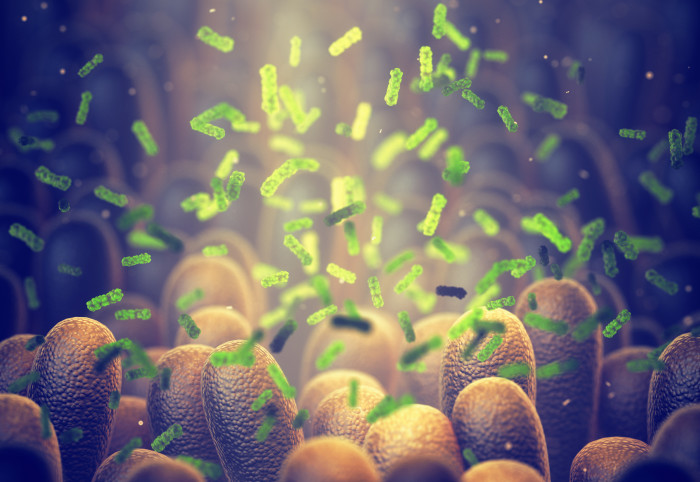Disease biology pioneers receive Wellcome Trust funding

Researchers studying immune system defences, gut bacteria colonisations, and parasite invasions have received funding to further their studies.
Dr Doryen Bubeck and Professor Gad Frankel from the Department of Life Sciences have been awarded Wellcome Trust Investigator Awards, which aim to enable independent researchers with a compelling research vision to tackle the most important questions in science. The scheme awards up to £3million over up to seven years.
In the same funding round, Dr Matthew Child, also from the Department of Life Sciences, had his Sir Henry Dale Fellowship extended. The scheme, a partnership between the Royal Society and the Wellcome Trust, provides support for postdoctoral researchers who aim to become independent scientists leading their own groups.
Dr Doryen Bubeck - How the immune system attacks
 Dr Bubeck and her team study the membrane attack complex (MAC), produced by the body’s immune system to fight infection. MAC is a protein-based pore that pierces the protective barrier of bacterial cells. Although MAC perforates the surface of these bacteria, it is unknown how the inner membrane is breached to cause cell death.
Dr Bubeck and her team study the membrane attack complex (MAC), produced by the body’s immune system to fight infection. MAC is a protein-based pore that pierces the protective barrier of bacterial cells. Although MAC perforates the surface of these bacteria, it is unknown how the inner membrane is breached to cause cell death.
The team aim to understand the key factors that render bacteria susceptible to MAC by modelling bacterial barriers, investigating how the position of MACs causes cell killing, and determining how the assembly of MACs on cell surfaces contributes to their activity.
Together, their experiments will help explain how MAC protects us from pathogenic bacteria and provide a strong foundation for the development of future antibiotics.
Dr Doryen said: “MAC is one of the immune systems first responders to pathogen infection. This award will allow me to discover the molecular basis for how MAC kills bacterial pathogens so that we can understand why some bacteria are resistant to MAC attack.
“Together with Professor Mark Wallace from Kings College London we are in the unique position to integrate information about how individual molecules move and information about how they're structured to tackle one of the biggest questions in innate immunity.”
Professor Gad Frankel - How gut bacteria colonise
 Professor Frankel and his team will expand their work on gut bacteria infections. Many bacterial pathogens use a system to inject ‘effectors’ into the internal surface of the gut, which enable the bacteria to colonise the gut and evade the body’s immune defences.
Professor Frankel and his team will expand their work on gut bacteria infections. Many bacterial pathogens use a system to inject ‘effectors’ into the internal surface of the gut, which enable the bacteria to colonise the gut and evade the body’s immune defences.
Most studies have focused on single effectors, but initial work by the team in mice shows that effectors rarely cause disease symptoms on their own, instead working jointly to colonise the gut. They also discovered that some effectors are essential in this process when in concert with some effectors, but not others, giving them ‘context-dependent essentiality’.
The team will take this idea of ‘effector networks’ forward, exploring questions such as whether age and the host genetic background play a role in maintaining the expansive effector network. They will also we will use the data to train their AI model to better predict infection outcomes.
Professor Frankel said: “While the classical reductionist approach was fundamental in gaining knowledge of the function of individual effectors, we now need to move towards a system approach to investigate the effector network postulate, which could lead to discovery of novel strategies for development of non-antibiotic infection prevention and control measures. This would meet a strategic need as we face the rapid spread of antimicrobial resistance”
Dr Matthew Child - How parasites invade
 After proteins are synthesised in our cells, they can be modified by the addition of chemical groups such as phosphate (protein phosphorylation) and lipids such as palmitate (protein palmitoylation), in a process known as post-translational modification.
After proteins are synthesised in our cells, they can be modified by the addition of chemical groups such as phosphate (protein phosphorylation) and lipids such as palmitate (protein palmitoylation), in a process known as post-translational modification.
Dr Child and his team are investigating the role protein palmitoylation may play in helping parasites invade cells. The parasite Toxoplasma gondii infects all warm-blooded animals including humans and causes toxoplasmosis.
In order to invade host cells, the parasite secretes special ‘organelles’. These appear to be regulated by proteins that have been palmitoylated. The team will research which precise proteins regulate organelle secretion and how, using techniques pioneered by Dr Child.
Dr Child said: “This fellowship will allow us to pioneer the holistic study of how specific programs of post-translational modifications are coordinated to organize complex biological process in space and time.”
Article supporters
Article text (excluding photos or graphics) © Imperial College London.
Photos and graphics subject to third party copyright used with permission or © Imperial College London.
Reporter
Hayley Dunning
Communications Division